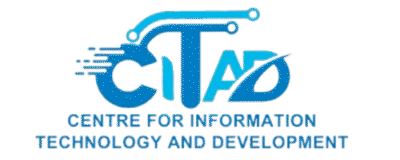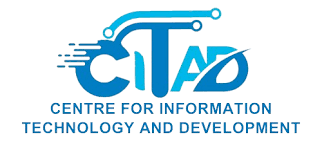As part of its ongoing efforts to create awareness on digital rights and online safety, particularly among children in Nigeria, the Centre for Information Technology and Development (CITAD) has been engaging stakeholders through media engagements, advocacy, webinars, and capacity-building initiatives to promote an inclusive and safer internet for all. Within this framework, CITAD organized a webinar titled “Safe Digital Spaces: Strengthening Child Protection Online.” The session was moderated by Amina Ibrahim Idris, a Digital Rights Expert, and featured Mrs. Onyenma Favour Eze, Finance Officer at the Ndukwe Kalu Foundation, and Barrister Abba Shuaibu, Lead Partner at Desk Law Office, as speakers.
The webinar focused on creating awareness around digital rights in Nigeria, with particular emphasis on safe digital spaces and strengthening child protection online.
In her presentation, Mrs. Onyenma noted that children today are growing up in a digital-first world. While this environment offers immense benefits such as learning, creativity, and global connection, it also exposes them to significant risks, including abuse, exploitation, and harmful content. She further outlined both the opportunities and challenges, aiming to equip stakeholders with the tools to make digital spaces safer for children. Among the major risks she highlighted were cyberbullying and harassment, exposure to harmful or inappropriate content, online grooming and sexual exploitation, privacy invasion and data misuse, and excessive screen time leading to addiction and mental health issues.
She also stressed that building safe online environments requires collective responsibility from multiple actors. Parents and guardians were encouraged to engage in open conversations, use parental control tools, and model positive online behavior. Schools and educators were urged to integrate digital safety into curricula, establish support systems, and promote peer-to-peer initiatives on child protection. Governments and policymakers were called upon to enact and enforce child online protection laws, regulate harmful content, strengthen reporting systems, and drive awareness campaigns. Technology platforms were tasked with implementing age-appropriate designs, strengthening privacy settings, and providing easy reporting mechanisms.
Adding to the richness of the deliberations, Barrister Abba Shuaibu provided a comprehensive perspective on the legal aspects of child protection online. He explained the role of Nigerian laws in safeguarding children in digital spaces and highlighted areas where stronger legal frameworks and enforcement mechanisms are required. His intervention reinforced the importance of policy and law in complementing the efforts of parents, schools, and technology platforms.
Participants were also introduced to practical safety tools such as Google SafeSearch, YouTube Kids, parental control apps like Qustodio and Family Link, as well as screen-time management features. The principle of “Think Before You Click” was emphasized as a guiding value for children online.
During the Q&A segment, Mrs. Onyenma responded to a question on child hygiene in a way that was clear, practical, and sensitive to children’s daily realities. She also provided valuable insights on how to identify online risks that children may be exposed to, including cyberbullying, inappropriate content, and other harmful digital experiences. Importantly, she emphasized the role of guidance and support systems, highlighting that children should be encouraged to reach out to parents, teachers, or other trusted adults whenever they encounter such challenges.
The webinar underscored that the internet should be a playground for learning and creativity, not a hunting ground for predators. Through shared responsibility and collaboration, stakeholders can strengthen child protection online and build safer digital spaces for the younger generation


